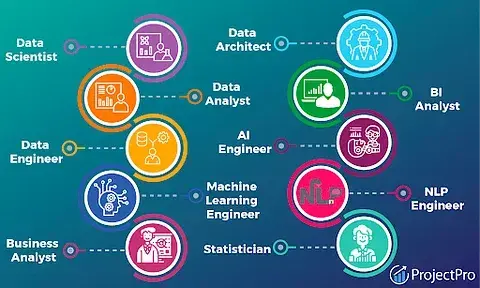Beyond the shoreline: A deep dive into Blue Economy
- Luycer Bosire

- Dec 18, 2023
- 3 min read

We're all familiar with the distinctions between blue-collar and white-collar jobs, but have you ever delved into the realm of the Blue Economy? Perhaps you've come across the term "aqua-preneurship"? Let me guide you through this intriguing concept.

The color blue typically evokes images of cloudless skies or vast water bodies. Most of us associate solar energy from the sun with a yellow hue, as we do blue to represent water. The term "economy" easily translates to a system governing the production, distribution, and consumption of goods and services. Economies vary in size, growth rate, development level, and the overall well-being of their citizens, measured by indicators such as Gross Domestic Product, unemployment rates, investment quantity and quality, and inflation.
Various themes surrounding water bodies and environments were introduced to me during primary school education. These ranged from the challenge of limited capital for fishermen to concerns about over-fishing, water pollution caused by human littering, and the impact of sea vessels. My interest in water, oceans, and climate action deepened during my graduate trainee program at the bank. It was easy to generate project ideas around Sustainable Development Goals (SDGs) like Zero Hunger, financial inclusion, energy, equality, infrastructure and development, and economic growth. However, I noticed that certain SDGs, particularly Climate Action and/around Oceans, seemed to lack sufficient research and investment. This led me to wonder: What makes these two areas so untapped?
In my quest for knowledge, I stumbled upon the Deep Blue Academy podcast, which delves into the intricacies of the Blue Economy. Our planet is often described as "blue" or the "blue planet," symbolizing the prevalence of water. Similar to numerous articles, journals, and various dictionaries, this podcast characterizes the Blue Economy as the utilization of natural water resources—both living and non-living—for production and consumption purposes; read economy. The Blue Economy represents a holistic and sustainable approach to harnessing the potential of the world's oceans, seas and marine resources while maintaining responsible and environmentally friendly practices to ensure long-term benefits for both humanity and the planet.

There are several themes that support and drive the Blue Economy along with a variety of investment options for ventures looking to explore this space. A few options are as highlighted below:
1. Renewable Energy from the Ocean:
Invest in Offshore Wind Farms: Support companies involved in the development, construction, and maintenance of offshore wind energy projects.
Tidal and Wave Energy: Explore investments in companies focused on harnessing the power of tides and waves for clean energy production.
2. Sustainable Aquaculture:
Invest in Responsible Aquaculture Companies: Support businesses that prioritize sustainable and environmentally friendly aquaculture practices.
Aquaponics Ventures: Invest in ventures that integrate aquaculture with hydroponics, creating a closed-loop system for efficient and sustainable food production.
3. Ocean Conservation Technologies:
Ocean Cleanup Initiatives: Invest in technologies and companies working on innovative solutions to reduce plastic pollution and clean up ocean environments.
Smart Fishing Technologies: Support companies developing technologies that promote responsible and sustainable fishing practices, such as selective fishing gear and real-time monitoring systems.
4. Marine Biotechnology:
Invest in Bioprospecting and Biotechnology Companies: Explore opportunities in companies researching and developing products derived from marine organisms for pharmaceutical, cosmetic, and industrial applications.
Coral Reef Restoration: Support initiatives focused on coral reef restoration to protect and enhance marine biodiversity.
5. Waste Management and Recycling:
Invest in Ocean-Friendly Packaging Solutions: Support companies developing sustainable packaging alternatives to reduce plastic pollution in the oceans.
Recycling Infrastructure: Invest in companies involved in building and maintaining recycling infrastructure to manage waste and prevent it from entering water bodies.
6. Tourism and Recreation:
Eco-friendly Resorts and Tours: Invest in resorts and tourism operators that prioritize environmental sustainability and promote responsible tourism practices.
Water Sports and Recreation: Support companies offering sustainable water-based recreational activities, such as kayaking, snorkeling, and diving.
7. Ocean Data and Technology:
Invest in Ocean Data Platforms: Support companies providing data analytics and technology solutions for ocean monitoring, weather forecasting, and marine research.
Underwater Robotics and Exploration: Explore investments in companies developing underwater robotics for exploration, research, and monitoring purposes.
8. Education and Awareness:
Support Marine Conservation NGOs: Invest in non-profit organizations focused on marine conservation, education, and raising awareness about the importance of the Blue Economy

It is my goal that this has piqued your interest in the Blue Economy and following technologies or fields of research that can be taken up in support of the same. We shall no longer head out to the coastal regions or lake side and just see water for what it is, but we shall find ways to encourage the emergence of concrete initiatives towards sustainable growth, innovation, and environmental stewardship. The scope of opportunities in responsible aquaculture, renewable energy, and marine biotechnology is vast, pointing to a future in which economic progress coexists with environmental well-being. Let the Blue Economy's waves of change guide us to a future where economic prosperity and environmental sustainability sail hand in hand. The journey may definitely be challenging, but the rewards—both for humanity and the planet—are boundless.





Comments